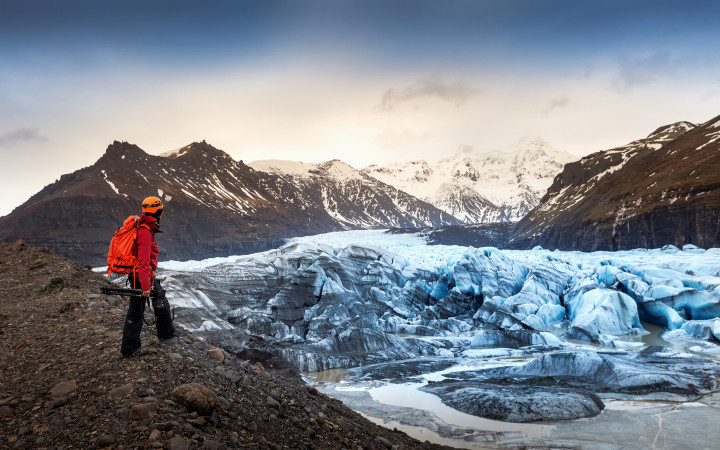Today’s Wonder of the Day was inspired by Farah from Ernakulam. Farah Wonders, “Are there old viruses trapped in icebergs?” Thanks for WONDERing with us, Farah!
Have you ever seen a glacier? If you haven’t and would like to, act quickly! As many of our Wonder Friends know, the world’s glaciers are melting. Each year, they shrink in size as icebergs break off and float away.
However, icebergs aren’t the only things released by melting glaciers. These giant sheets of ice also hold very old viruses and bacteria. And, as the ice melts, some of them may be waking up.
In 2015, scientists took samples of ice from a 15,000-year-old glacier in Tibet. They hoped to learn more about the history of life in the region. What was the result? The scientists found 28 new virus genuses frozen in the ice.
Experts think they can learn a lot from these ancient viruses. They hope to find out how microbes survive. This may help future people as new viruses turn up in the Earth’s changing climate.
However, others worry about the species unleashed by melting ice. Could these viruses and bacteria cause sickness in humans? As yet, the viruses found in the Tibetan glacier seem to only infect amoebas. They may not be a threat to people. But melting ice elsewhere in the world might be a different story.
In 2016, parts of Siberia saw a heat wave. The higher temperatures caused melting of the region’s permafrost. This is a layer of soil that normally stays frozen year-round. As the ground warmed, bacteria escaped. This caused a large outbreak of Anthrax in the area.
That’s not the only case of thawed microbes causing problems. In 2017, a teacher in Alaska came home from an archaeology trip with a skin infection. He visited his doctor. That’s when he learned that the infection was likely caused by bacteria from thawed seal carcasses he handled on the trip. The bacteria had been frozen with the seals in permafrost for many years before infecting him.
How worried should people be about the viruses and bacteria escaping from melting ice? Most experts aren’t ringing the alarm bells, yet. Instead, scientists are more concerned about the learning opportunities lost as the ice melts. They worry that many microbes will be lost to time.
Is there any hope for saving the world’s glaciers? Most experts say no—the planet has already warmed too much. However, there’s still time to stop many other serious effects of climate change. Talk with a family member today about what you can do to keep the environment healthy.
Standards: CCRA.L.3, CCRA.L.6, CCRA.R.1, CCRA.R.2, CCRA.R.4, CCRA.R.10, CCRA.SL.1




